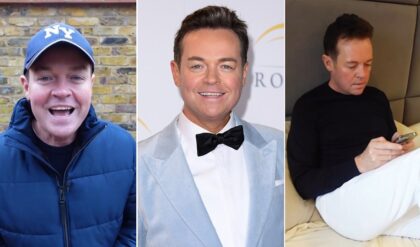Jodie Foster has been one of the most consistent talents in cinema. For over 50 years, she has been delivering performances that demonstrate emotional depth, a transformative ability to sit across genres. From dark comedies and portraying FBI agents to 2000s thrillers, Foster has solidified herself as one of Hollywood’s most compelling actors.
Starting her career in children’s television in the mid 1960s into early ‘70s, appearing in a number of Disney films before a breakout role at the age of 12 in the Martin Scorsese film Taxi Driver in 1976. The performance would see a young Foster paired up with Scorsese collaborator Robert De Niro, who would recognise the ‘serious potential’ in the young actor whose role as a child prostitute in a grimy ‘70s New York would earn her Academy Award and BAFTA nominations.
Foster’s role as Sarah Tobias, in 1988’s The Accused would again earn accolades, including being award the Academy Award for Best Actress, beating out Meryl Streep and Glenn Close, proving that Foster’s talents weren’t merely impressive for a child actor, but that her presence on screen from a young age had given her the skill and confidence to embody roles that challenged her and audiences, tackling difficult subject matter and dark themes.
The 1990s saw Foster in one of her most defining roles, as FBI agent Clarice Starling, in The Silence of the Lambs, playing opposite a masterfully sinister Anthony Hopkins as the serial killer Hannibal Lecter. A role that Foster would later name ‘one of her favourites’, would see her again take home the Best Actress accolade, and see the film become one of the most important and revered pieces of filmmaking of the 1990’s.
Throughout the 2000, Foster found a niche for herself in the thriller genre, which had been gaining popularity through the late ‘90s and into the early ‘00s. Partnering with acclaimed director David Fincher in 2002’s Panic Room and then with Robert Shwentke in 2005’s Flightplan saw Foster twice take on the role of a mother in turmoil, desperate to protect and save her daughter. “It clearly must be something I’m drawn to” says Foster, who was at this point in her life a mother to two young boys herself. “I must be drawn to the aspect that a parent would do anything to keep their child safe”.
Foster would go on to say that she didn’t consider taking on the roles lightly, “I am very picky. But I’ve made a lot of movies in my life, and as time has gone by, I’ve made less,” she would say of her slowing down output in the 2000s.
Her choice to play a mother in distress twice within the space of three years didn’t happen by chance, “I don’t think it’s a coincidence, no,” the actor would say, and considering she saw out the decade making her first children focussed film Nim’s Island, Foster was clearly pulled towards roles that made her consider her own children, whether in her performance or her overall work.

